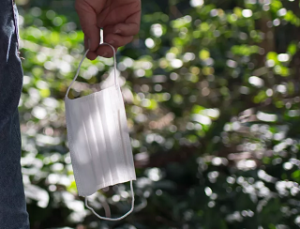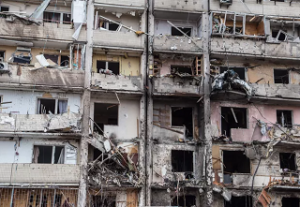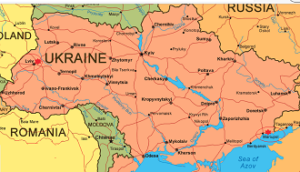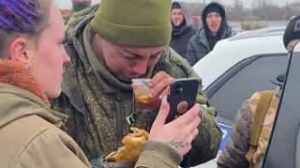
Arquivo para a ‘’ Categoria
Covid: end of the state of emergency in Brazil
The state of Emergency in Public Health of National Importance (ESPIN) in Brazil was decreed by the then Minister of Health Henrique Mandetta, in February 2020, this weekend Minister Marcelo Queiroga declared the end of the Public Emergency, ESPIN started a cycle that allowed special funds for the purchase of supplies and vaccines to combat the pandemic.
(ESPIN) in Brazil was decreed by the then Minister of Health Henrique Mandetta, in February 2020, this weekend Minister Marcelo Queiroga declared the end of the Public Emergency, ESPIN started a cycle that allowed special funds for the purchase of supplies and vaccines to combat the pandemic.
The first official case was registered on February 26, 2020, making it more than 2 years ago, from then on it was a set of uncertain steps, opening and closing of establishments, bans on public gatherings, including cultural and religious events.
There is no declaration of a pandemic, nor an express release of safety protocols, as always the criteria are vague, such as the use of masks for example, which would be recommended.
The average number of deaths in the country is now around 100, having registered a very low number at the weekend, around 30 (the bodies that publish the numbers varied), but it must be remembered that the functioning of the secretariats of health on weekends is deficient.
It is difficult to predict the future of the disease with scientific data, experts warn, in general they draw two scenarios, one more optimistic that predicts the extinction of the virus and its variants, and another that predicts living with Covid-19 for a long time, which is considered more realistic, albeit at lower levels, and only in this case could it be considered endemic.
What is expected is serious monitoring and effective control of the circulation of the virus in the country.
Being, Pain and Easter
This is a time that did not abolish Pain, because as we developed in previous posts it is inherent to existence, but we condemn it to oppose it to Being and Happiness, the philosopher Byung Chul Han wrote: “Just in the palliative society hostile to pain , silent pains multiply, crammed into the margins, which persist in their absence of meaning, speech and image”. (HAN, 2021, p. 57).
in previous posts it is inherent to existence, but we condemn it to oppose it to Being and Happiness, the philosopher Byung Chul Han wrote: “Just in the palliative society hostile to pain , silent pains multiply, crammed into the margins, which persist in their absence of meaning, speech and image”. (HAN, 2021, p. 57).
Nothing is more paradoxical in post-modernity than Pain, so the Cross is imagined as a symbol of liberation and of life, one could even say: absurd, but Paul the Apostle warns: “For both Jews ask for signs, and Greeks seek wisdom; but we proclaim Christ crucified, who is a stumbling block to Jews and foolishness to Gentiles.” (Corinthians, 1:23).
It is in this perspective that racial violence, various forms of exploitation and what Byung Chul Han calls “self-exploitation” are explained, we no longer need others to exploit us, we do it voluntarily, incitement to a daily life with the mark of counting and not of Being.
The Pandemic could be an occasion for solidarity pain, but it was another impulse for exclusion, for isolation, for the strengthening of barriers and individual anxieties, which exploded in an anxiety crisis, in various ways of ignoring the pain of others, the point of denying it altogether.
It took a while, but in the final battle against the Pandemic we gave in to fatality, to the delirium of public parties out of time, the desire to overflow and try to ignore the pain for the ecstasy of public parties.
What appears on the horizon of this delusion are even more hellish wars, desires for domination and more power, lives are ignored with almost always absurd justifications: it was inevitable, there is no way to stop them without weapons, etc. more wars, more deaths, more suffering and market crashes.
Apparently, ignoring the divine Passion, we are making great strides towards a civilizing, humanitarian “passion” (of suffering) and a greater abyss than that which would be to live and manage the pains of a sick civilization and postmodernity with a horizon dingy.
There remains the hope of those who believe in the solidarity overcoming of a dormant humanity, of a balanced civilization center that recovers not only the process of hominization but also its solidarity with nature and the universe we live in.
This is a possible reading for the Divine Passion of the one who for love endured human pain, only a “passage” through Pain can make us understand a new possible humanity.
HAN, Byung-Chul. (2021) A sociedade paliativa: a dor hoje (The palliative society: pain today). trans. Lucas Machado. Brazil, Petrópolis: Vozes.
Pain, Being and the Other
Pain is essential in existence, philosopher Byung Chul Han in the essay “The society palliates pain today” writes talking about the pandemic and the rediscovery of Being: “I feel pain, therefore I exist. We also owe the sensation of existence to pain. If it disappears entirely, substitutes are sought” (Han, Vozes, 2011, p. 65). But the pain of the Other is strange to us, writes Han: “The nakedness of the soul, the being exposed, the pain with the other, are entirely lost to us” (Han, p. 104), there is no compassion.
the essay “The society palliates pain today” writes talking about the pandemic and the rediscovery of Being: “I feel pain, therefore I exist. We also owe the sensation of existence to pain. If it disappears entirely, substitutes are sought” (Han, Vozes, 2011, p. 65). But the pain of the Other is strange to us, writes Han: “The nakedness of the soul, the being exposed, the pain with the other, are entirely lost to us” (Han, p. 104), there is no compassion.
That’s why the cruelty of war, the totalitarian leaders who expose this kind of contempt for the Other, for their pain, in the case of the Pandemic the number of dead are so anesthetized, it doesn’t hurt us so it doesn’t exist, which is a falsification of being , for it is Being only with-the-Other.
Megalothymia, the overvaluation of oneself, or of the social group to which one belongs, is both for Chul Han and for Fukuyama (who wrote “The End of History”, poorly read and interpreted), inspired by Nietzsche that this is the “last human being”, which reveals this type of anesthesia: “a little poison now and then: it gives pleasant dreams” (Han, p. 105).
It is important to understand why we admit death, even if unfair (of the innocent and those infected by the virus) because we do not imagine it as non-life, it does not hurt us, and the pain of the other is not felt, it can even be denounced by group aspects , but not as being and as Other. But it was not Nietzsche who “killed God”, not even the divine in us, the passion of the cross is pain-with-the-Other, it makes no sense but a divine Being who gives himself up for the Other, and there he is pure Being, it is divine Being.
When judging Jesus and even finding no crime, he hands him over to crucifixion, and even condemned the divine Being who will be subjected to a cruelty of thorns, scourging and finally crucifixion, still looks at the humanity of his executioners and says: “Father, forgive -them! They don’t know what they’re doing!” (Luke 23:34).
Who killed Jesus were the power of the Roman Empire, a face of totalitarian power, and the Pharisees: bad religion and misinterpretation of what should be our re-connection (true re-ligion) to the divine. Pain is essential in existence, philosopher Byung Chul Han in the essay “The society palliates pain today” writes talking about the pandemic and the rediscovery of Being: “I feel pain, therefore I exist. We also owe the sensation of existence to pain. If it disappears entirely, substitutes are sought” (Han, Vozes, 2021, p. 65).
HAN, B.C. (2021) Sociedade Paliativa: a dor hoje. Trans. Lucas Machado. Brazil, Petropolis: Ed. Vozes.
Covid 2.0: flexibility and new care
Except for China, which still makes strict lock downs, even countries that practiced confinement, such as Australia, New Zealand and South Korea, by easing protection measures, had in recent weeks a significant increase in cases by covid, even so they reopened.
countries that practiced confinement, such as Australia, New Zealand and South Korea, by easing protection measures, had in recent weeks a significant increase in cases by covid, even so they reopened.
I call it Covid 2.0, because Web 2.0 meant the arrival of the Web for everyone, yes most cases are few serious and there are many asymptomatic cases, but the virus circulates, and the number of deaths is around 200, which is the case from Brazil, means 1,400 per week, this is not a small amount.
In Europe, many countries, such as the United Kingdom, Denmark, France and Spain, had already relaxed public health policy measures, and there are already increases in Covid 2.0 cases there.
Worldwide, the number of cases has been falling, and the WHO itself is already waving a post-Covid scenario, what is worrying is that there is no policy for cases of outbreaks in certain regions and a clear policy of easing, and the number of cases small deaths, 1643 in the last few hours, contrasts with the number of infections: 777 thousand.
It is believed that the new variants will be less serious (China has already discovered a new variant), although not less infectious as BA.2 is already more infectious than the original Omicron, which explains the high number of infections.
It would be advisable to check and isolate regions with outbreaks and not fail to have some social protection, for example, distancing and masks, which is possible even with flexibility.
The hope that the new variants will be less aggressive and that the number will continue to fall is good, but not failing to take care is dangerous and now depends only on individual attitudes and giving support to needy regions that still have low vaccination rates.
On these days the HSE (Health Service Executive) – Irish public health service reported that the number of cases of hospitalizations for covid has grown again and is studying to apply the 4th. dose.
Error and the search for truth
The phrase is from the Russian writer Mikhail Saltykov-Tcherdrine, who wrote about the pseudonym M. Nepanov (wrote Contradictions), his phrase: “whoever never sought the truth certainly never made a mistake”, much better than the popular adage: “only whoever never tries is wrong”, because even if it is innocently, something is always tried.
who wrote about the pseudonym M. Nepanov (wrote Contradictions), his phrase: “whoever never sought the truth certainly never made a mistake”, much better than the popular adage: “only whoever never tries is wrong”, because even if it is innocently, something is always tried.
His sentence completes this thought: “There are times when society, seized with panic, deviates from science and seeks salvation in ignorance”, something that seems typical of our time: at first ignoring the pandemic and vaccines, then ignoring the dangers that result from it and finally try to live with it as if the disease were something natural, and the remedy is to vaccinate four, five, … times.
Folly and frivolity seem to be reactions to a crisis that is deepening, in addition to the war, a rise in prices and food shortages are looming, yes what happens for the time being seems to be circumvented and when it is no longer, what would be wise to do, it seems that few care.
I chose to speak of an unknown literary author of the 19th century, he did not live in the period of the Soviet Union, to attest to the ignorance of punishing Russian culture, science and sports, as a punishment for a war, undoubtedly unfair, but of the which the Russian people are also victims.
Even seeing the horrors happening in Ukraine, we cannot ignore the horrors of the West and the warlike escalation that may have in the near future other chapters as painful as the current ones, is an escalation that seems to have no return.
One cannot ignore the mistakes of the second war, the mistakes of the post-war period, the countless interventions in the East, Asia and Africa that caused wars and deaths that were equally reprehensible.
It is necessary to recognize the mistakes, it is necessary to forgive the colonial period, still in progress, and it is necessary to allow peoples to live their culture, their ideals, as developed by Raymond Aron (War and Peace between Nations) and in security, the The author quotes Clausewitz in his book: “War is an act of violence, and there are no limits to the manifestation of this violence” (Aron, p. 69).
It’s a difficult time when we just point out our mistakes to others, without looking at our own.
Why the Pandemic Isn’t Over
The hypotheses that vaccines are efficient against the variants of the Ômicron fall apart when it is observed that in the East and in Europe the variant BA.2, already called Ômicron 2.0, has a degree of infection 1.5% higher than the original strain and even where the number of deaths is falling, the degree of infection recedes at a slower rate.
Ômicron fall apart when it is observed that in the East and in Europe the variant BA.2, already called Ômicron 2.0, has a degree of infection 1.5% higher than the original strain and even where the number of deaths is falling, the degree of infection recedes at a slower rate.
In Brazil, the number of deaths is in the moving average around 250, while the number of infections is in a moving average that varies below 40 thousand and above 32 thousand, but if observed punctually, the number of infections on Thursday was 47,000 and Friday of 36,176 on Saturday, and there are still unreported cases of asymptomatic and there is no testing policy.
Imagining that the next strains may be less lethal can only be thought of in the field of hypotheses, although there are studies that even claim this, in fact, the explosion of cases in Europe and the East belies this possibility, as there are already reported deaths and low efficiency. of vaccines.
The release of protocols, it is true that not in all environments, some places continue to be more careful, but the political signaling of release leads to less care.
According to the WHO, BA.2 is associated with an increase in cases of Covid-19 in European and Eastern countries, and while at the end of January there was a drop in infections, in the period from the 14th to the 20th of this month the world body of health records an increase of 7% in infections, while the number of deaths there is a reduction of 23%, which means lower lethality of the strain.
The entity recorded 12.3 million new cases and 32,900 deaths from Covid-19 in the period.
There is undoubtedly a drop, but the greater spread of the new strain should be viewed with concern because it promotes the circulation of the virus and does not eliminate the possibility of mutations.
The desirable peace
Peace between peoples must come from a deep reflection on the differences and tolerance between values that are extremely diverse and that do not necessarily mean the impossibility of peace, and when there are old scars, care must be taken to avoid them, they exist. because some peace was established without respecting the dignity of peoples.
necessarily mean the impossibility of peace, and when there are old scars, care must be taken to avoid them, they exist. because some peace was established without respecting the dignity of peoples.
Raymond Aron wrote “Peace and war between nations” (Paz e guerra entre nações, Martins-Fontes, 2018) thinking about this, reflecting that each people must be faithful to its ideal as a nation, not ignore a conflicting history, and, think and act with determination to do that the absence of war lasts until the moment when peace is possible and durable, imagining that that day will come.
Edgard Morin in his recent essay “The edge of the abyss” (a post has already been made here), said “one of the aspects of the tragedy is that we cannot make use of weakness and strength separately and that we are obliged to navigate between the two in a different way. uncertain”.
Above all, forgiveness is needed between peoples and nations that have lived through conflicts, as was the case with Germany, Italy and Japan, who were in the second war and managed to overcome their own scars and maintain their ideals as strong nations, which they are today.
It is necessary that they behave like the prodigal son who, upon returning home, in this case to his own territory and the healthy roots of his peoples, managed to rebuild nations under a new cloak of pacifism, tolerance and the development of their nations.
It is also necessary that the conflicting nations be open to this new beginning, in the biblical parable, the eldest brother does not understand that the father celebrates the brother who spent all the inheritance money wasting on futile and fleeting things, and now returns home, in terms of war the return to their own territory.
Such is neither the Pax Romana, of subjugating the vanquished peoples, nor the Pax eternal liberal ideal that did not lead to lasting peace.
Between peace and war by a thread
Negotiations between Ukraine and Russia show signs of progress at the same time as delicate points such as the closing of the humanitarian corridor to the city of Mariupol, which is experiencing a calamity in several aspects and the recent bombing of the military base in the region of Lviv, just 25 kilometers from the border with Poland which is a member of NATO.
the same time as delicate points such as the closing of the humanitarian corridor to the city of Mariupol, which is experiencing a calamity in several aspects and the recent bombing of the military base in the region of Lviv, just 25 kilometers from the border with Poland which is a member of NATO.
The tension is already developing from a possible attack on a NATO country, in Norway NATO forces already carry out training, since Sweden and Finland already have tension with Russia, it is worth remembering that both want to be part of NATO, but they still don’t.
What makes you imagine that an agreement is possible is that both the president of Ukraine and Russia admit that there has been some progress, a failure now would be disastrous for both sides, on the Russian side greater external pressure on its economy and on the Ukrainian side possible loss of control of their capital, which could result in loss of government by imprisonment or death.
The pressure on Kiev is immense, but taking the capital would be an effective Russian occupation of the region and the climate with NATO would be unsustainable, in addition to a conflict with some of its members, the closest to the region: Latvia, Lithuania, Estonia and Poland in addition to Sweden and Finland, these countries are all closer in both humanitarian and military aid to Ukraine and fear for Russian proximity.
Today there will be a new round of negotiations and a major breakthrough is expected, Ukraine can give guarantees of its neutrality in relation to NATO and Russia can return some occupied areas, but Mariupol must be the most problematic, just look at the map where you can see the control of the Sea of Azov (see map), where Mariupol is an important port, and control of the region is an ancient conflict.
I n addition to demonstrations around the world for peace, there are solidarity actions for refugees, for example, Airbnb receives thousands of accommodation reservations from people who may never occupy those places and the company itself using these reservations will allocate 100,000 homes to refugees.
There are exciting things like the hostess Olga Zvirysanskaya who received a reservation for March and replied “we will be delighted to see you in the peaceful city of Kiev and hug you”, when fleeing with her children she left the apartment available for the people who remain in Kiev.
Moral force and warfare
Those who promote hatred and intolerance, even if beyond values, only see it as dependent on human capacity, Mahatma Gandhi who won the English domination without using military force said: “Strength does not come from physical capacity”.
values, only see it as dependent on human capacity, Mahatma Gandhi who won the English domination without using military force said: “Strength does not come from physical capacity”.
It inspired many pacifists in the 1960s, including those who were against the war in Vietnam, which was also a war of invaders, in this case, Americans.
Military analysts are surprised by Ukraine’s ability to resist amid a huge disadvantage of war power with Russia, although in military jargon there is the idea of ”troop morale” it is associated only with the battlefield and not with values.
For a moral force to exist, it must also exist in the spiritual field, in the case of Gandhi it was Hinduism that for decades inspired and attracted many in the Western world, including personalities from the pop world, such as the Beatles.
Thus, the moral degradation of the western world is also indirectly responsible for the war and in its logic, which is also the logic of NATO, only the military force is victorious and protective of its “values”, but these are in crisis and do not recognize it.
Ukraine thus ended up turning to its neighbors and the threat they also fear of Russian invasion, which hides an expansionist interest, gave rise to a third bloc to help Ukraine defend its territory: Poland, Lithuania, Estonia, Sweden, Finland and Canada. , countries previously seen as “pacifist”.
This bloc broke a tradition of not using weapons to help the defense of Ukraine, completes this bloc the United Kingdom, which is good to remember is out of the European Union, due to Brexit, which attracts them in addition to the fear of being the next targets of the Russia is the defense of values beyond those warlike, which ultimately also defends NATO.
It is true that they oscillate between the use of weapons and pacifism, but they realize that there is no way to prevent Putin’s expansionist desires, whose historical narrative begins with the formation of the Soviet Union, with no previous history, of the native peoples.
The logic of hate, whichever side it is on, is ultimately war, that of love is peace.
Power and service to peoples and nations
Wars bring out the worst in humanity, but they also bring the best: solidarity, the greater desire to live in peace and respecting individual, collective and cultural rights of all peoples.
best: solidarity, the greater desire to live in peace and respecting individual, collective and cultural rights of all peoples.
When the logic of power is dominated by a non-humanist vision, it seeks personal or group interests, the idea is just to submit the other by force and conquer more power, there is no predominance of the idea of leading and serving the people who need it most. of aid, your nation and all humanity by extension and respect.
The logic is one of force, and the logic of force taken to the extreme leads to war, to personal conflict, of peoples, nations, cultures and personal interests only without a reasonable collective rule.
There are also true leaders and people who really want to serve, not only because of their generous spirit, but because of the courage, the determination that can only come from human and social values, there are even those who think about the preservation of cultural heritage, animals, in short, everything. .
The principle of self-determination of peoples, in which each nation, cultural or religious group has the right to exist and the freedom to exercise its values, of course does not include non-values of extermination or intolerance towards the principles of other cultural groups, because these serve only the power and the autocrats who lead them.
There are people who think of peace and solidarity even in war (photo Russian soldier who did not fight receives food and sends an emotional message to relatives).
We have warned in several posts of the ongoing civilizational crisis, with the war some aspects become clear, but without the enlightenment of the individual conscience it is difficult to understand the ways in which the logic of war, intolerance and discrimination advances, each one must reflect about this.
There is no lack of people and groups that adhere to this type of thinking and reasoning, when power becomes exacerbated it becomes clearer, but there are micropower structures where these values are manifested.
Thus, there are structures of hatred, intolerance, and, ultimately, war, which puts life, values in check and can even put civilization itself in danger, like nuclear weapons.

